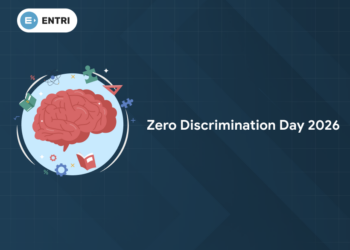Table of Contents
Many tests are present to assess your proficiency in the English language before you go to anglophonic countries for education or work etc. IELTS is one of the main ones among them. Let us learn more about the IELTS exam and also read some tips on how to crack the IELTS exam in 15 days.
What is IELTS?
International English Language Testing System more commonly known as IELTS is the most popular one among the exams conducted to test your English before migration, for both study as well as work. Many universities, institutions and firms hold a person’s IELTS score as a true indicator of their English language communication proficiency. IELTS tests a candidate’s English proficiency in four sections. These include listening, reading, writing and speaking. The IELTS Exam is delivered as a computer-based or as a paper pen test.
IELTS is very important because it is the only English proficiency test that is approved and recognised by countries like New Zealand, Australia, United Kingdom and Canada. It was the first test which began the four-skill language testing format. And it still sets the standards for English testing even today.
Register for the best IELTS course of 2024! Get into your dream university this year!
Types of IELTS Exams
1: Most university students ........................ on campus in their first year.
The IELTS exam is available in two formats, academic and general. The IELTS academic format is for people who are migrating for higher education opportunities. This test helps to test your language skills that are suitable in an academic setting. The IELTS general format is for people who are migrating for work or applying for a permanent residency (PR). This exam tests an individual’s English language skills applicable in practical everyday situations. This could include real-life scenarios such as a grocery store, bank or even workplace. Make sure that the type of test you choose is appropriate for your objective of going to a foreign English-speaking country.
Ace Your IELTS Exam with Confidence!
Unlock your potential with our expert-led IELTS preparation course. Achieve your dream score and open doors to global opportunities!
Start Your IELTS Journey Today!IELTS Exam Pattern
It is important to understand the question pattern of an exam before starting preparations. Let’s check out the pattern of the IELTS exam before starting our 15-day challenge.
| Section | No of questions | Time | Type of Questions | Score |
| Listening | 40 | 40 minutes | · MCQ
· Matching · labelling · plan or map or diagram · or form or note or table or flow-chart or summary completion · sentence completion |
1 mark /question |
| Reading | 40 | 60 minutes | · MCQ
· identifying information · identifying the writer’s views or claims or matching information or headings or features or sentence endings or sentence or summary or note or table or flow-chart · diagram label completion · short-answer questions |
1 mark per question |
| Writing | 2 | 60 minutes | · Describe graph table or chart or diagram
· essay-writing · letter-writing |
Direct band score |
| Speaking | 3 parts | 11-14 minutes | · Questions on general topics
· speaking on a specific topic · questions on the specific topic |
Direct band score |
IELTS Exam Format
As we discussed earlier, the IELTS exam has four sections, namely listening, speaking, writing and reading. It must be noted that the speaking test is often scheduled a week before or after the other three sections. Let’s read to learn more about the testing format for all the sections.
Listening Test
The objective of the listening test in the IELTS exam is to test the spoken English comprehension skills of the candidate. The listening test has four sections each having different types of listening tasks. The duration of the entire test is about half an hour. The last ten minutes of this time is for transferring your answers into the answer sheet. In the test, four recordings are given. They are played for the candidates only once. After that, some time will be provided for the candidate to read the questions before the section begins.
Reading Test
The reading test format is very similar for the academic IELTS and general IELTS. However, the context of the tasks and questions are very different.
Academic IELTS Reading Test
This test has three sections. Each of these sections has lengthy passages which are often experts taken from books, newspapers and Magazines.
General Training IELTS Reading Test
This test also has three sections. But unlike the academic IELTS reading test, these passages are related to everyday situations. For example, company handbooks, newspapers, official documents, advertisements, magazines and notices.
Writing test
For the writing test, both general and academic IELTS types are valued similarly. The only difference is that the IELTS academic writing test has questions suitable for graduate and postgraduate students. The general type covers common topics.
Writing Test: Academic Version
There are two tasks under this section. The writing here should have an academic neutral or semi-formal tone.
In the first task, the candidate is given a chart, graph, table or diagram and is asked to summarise and prepare a report on the information given. The candidate should then study, select and compare the data and make a brief yet good report.
In the second task, the candidate will be given a topic, opinion, problem or argument and will be asked to write an essay. This task is allocated twice the mark allocated for the first task.
The topics that come under both tasks are general and will be easily understandable for candidates who are planning to enter undergraduate or postgraduate courses.
Writing Test: General Version
Here the two writing tasks are based on general topics.
In the first task, the candidates are supposed to write a letter. In this letter either they have to ask for some information or explain a situation. The writing tone of the letter can be formal, semi-formal or even personal. All of that depends on the situation.
The second task is the one in which an argument, opinion or problem will be given to the candidate and they have to write an essay based on it. The writing tone of the essay can be less formal and have more of a personal touch.
Speaking Test
The objective of the speaking test in IELTS is to test the ability of an individual to communicate in English. The test is conducted in person with an allotted examiner. There are three tasks and all of this lasts for about 11 to 14 minutes. The examiner analyses four factors before deciding the scores for the candidate. They are lexical resource, coherence, grammatical range, and pronunciation.
Want to get a high score in the IELTS grade band? Click here to join the Entri IELTS course!
IELTS Scores
What are IELTS scores and what does each score mean? This is a very simple question that needs to be answered. The table below provides the details regarding the scores in the IELTS score band and what they mean.
| Band score | Skill level |
| Band 9 | Expert user |
| Band 8 | Very good user |
| Band 7 | Good user |
| Band 6 | Competent user |
| Band 5 | Modest user |
| Band 4 | Limited user |
| Band 3 | Extremely limited user |
| Band 2 | Intermittent user |
| Band 1 | Non-user |
| Band 0 | Did not attempt the test |
Ace Your IELTS Exam with Confidence!
Unlock your potential with our expert-led IELTS preparation course. Achieve your dream score and open doors to global opportunities!
Start Your IELTS Journey Today!How To Crack the IELTS Exam In 15 Days?
The possibility of cracking an IELTS exam by preparing for a fortnight is highly unlikely. But as we say, nothing is impossible. To achieve a good score, the preparation for IELTS should be regular and thorough. Let’s read on to get a brief idea of how to crack the IELTS exam in 15 days.
Day 1: Understanding Exam Format
The first thing to do while planning to appear in an exam is to learn its format and syllabus. You cannot study for an exam without knowing what you should study and what kind of questions will be asked for the test. Once you understand this format everything will be much easier for you to plan. The IELTS exam format of all four sections for IELTS general as well as. IELTS academic type is provided in this essay for your convenience. Please read it before continuing.
Day 2: Understanding Grading
It is essential to understand the assessment and grading guidelines followed once you have a thorough idea of the exam pattern. Also, look into the score chart given on this page to understand what a score in the IELTS score band means.
Day 3: Start With Reading Section
Among the four sections in the IELTS exam, reading and comprehension is the easiest. So starting your IELTS exam preparation with the reading section will help you gain confidence. What you have to do first is find some previous year’s question papers and try your best to solve it within the time frame of the actual test. When you do this, you will have a brief understanding of which level you are when it comes to each of these skills. Once you get that, you can slowly start improving your reading techniques so that it will help you to finish the exam in less time.
Day 4: Mastering Skills in Comprehension
The fourth day of your IELTS exam prep should be devoted to mastering the skills in comprehension. Find reading competition-type questions in the form of passages and related questions. Solve as many as possible for you. Take the use of a timer when you feel confident enough. Make note of how much time you spent in reading the passages as well as answering the questions.
Day 5: Mastering Reading Techniques
You have many new reading techniques at your disposal due to the work you did on day 3. Focus more on the reading techniques that help you improve reading speed for example skimming. This is a method that helps you find the necessary answers while skipping the unnecessary details in between. So, practice all these reading techniques well for this day.
Day 6: Work on Full-Length Passages
You have been preparing and polishing your reading techniques for the past 3 days. Now is the time to take all the techniques at your disposal and start the real exercise. Take up real passage-type questions from previous IELTS exams and work hard on them.
Day 7: Start Listening Section with Podcasts
Start the second week of your IELTS exam preparation by listening to podcasts. This is a less daunting way to slowly step into listening skills. You can also use the materials provided by your mentor along with podcasts. This will help you be comfortable with different accents around the globe. And this familiarity with accents is very crucial when it comes to understanding them. Listen to news, interviews etc so that you can catch the accent and tone of the English speech.
Score top marks in IELTS exams! Click here to watch demo classes!
Day 8: Solve Listening Questions
Today is the day you have to put the listening skills that practised on day 7 to the test. Start solving actual questions taken from IELTS exam listening tests. You have to cut yourself some slack and the initial phase. Listen to the audio repeatedly if you have to in the initial attempts. Give yourself some time to be familiar with the exercise. But always remember that in IELTS listening test will play the audio only once. So practice your listening exercise with great focus from the initial phase itself.
Day 9: Speaking To An Expert English Speaker
Practising your speaking with someone who is already fluent in English is the best way to improve your English. Speaking in English daily with your friends and family will help you have more familiarity with the language and hence boost your confidence. This will help you understand idioms and other similar expressions used by the expert speakers and natives. Having conversations in English will indirectly help the listening skills also.
Day 10: Practicing With Cue Cards
Using cue cards is a great way to prepay for the IELTS exam speaking test. They will help you organise your thoughts as well as Structure your response.
Day 11: Learning Phrasal Verbs and Idioms
Idioms are expressions that say something but mean something else indirectly. Phrasal verbs are also somewhat similar to this. The only way to learn them is to remember. So, try to learn as much as phrasal verbs and Idioms along with the context of their usage. Using idioms and phrasal verbs will be counted as an indication of the depth of your knowledge and will certainly impress your examiner in a speaking or writing skill test.
Day 12: Vocabulary Building
Having good vocabulary knowledge is essential for proficiency in any language. English is no different. Having more words several words at your disposal will certainly make all the skills you are trying to gain for IELTS improve much better. Having a good vocabulary and comfortably using difficult words in conversation or writing will help to convince the examiners that you have great knowledge of the English language. Reading is the best way to improve your vocabulary in the long run. But for now, you can look up the synonyms of the words you find hard or interesting while you are doing the language exercises for the IELTS exam.
Day 13: Learning Grammar
There is no way to learn whole of the grammar in 15 days. What you can do is just go through the basic rules of the essential topics and practice some exercises like fill in the blanks that you can find online or in the practice material offered by your mentor.
Day 14: Starting With the Essays
Find some essay prompts from the old question papers for IELTS. This will help you to organise your ideas and give a good structure to your writing.
Day 15: Solve Full IELTS Mock Test
Many websites and coaching institutes offer mock tests, some of them even free. You can also buy a book containing mock tests and sample answers.
Click here to join the best IELTS classes of 2024! Get the best mentors and study materials!
How To Crack the IELTS Exam In 15 Days FAQs
- Which IELTS is best for people going abroad for education?
IELTS Academic is the best option for people who are going abroad for higher studies.
- What is the best method to gain speed in the reading section?
The best method to gain speed in the reading section is skimming.









